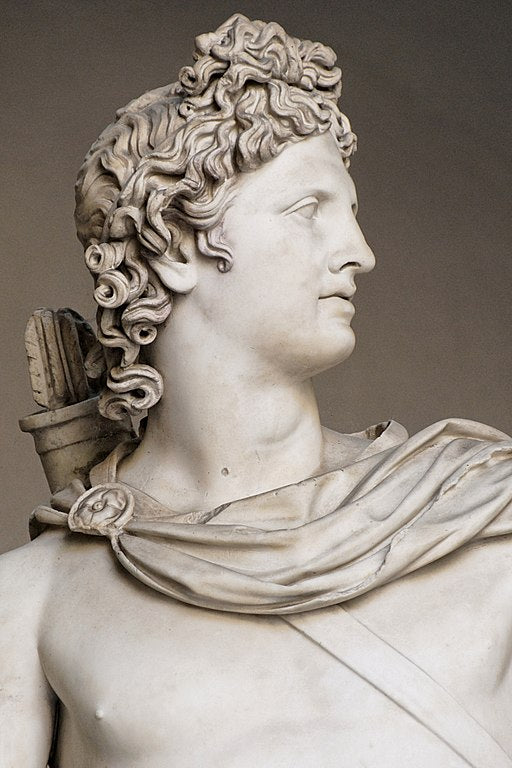At the heart of Apollo's mythos lies a tale of love and tragedy.
In the pantheon of Greek mythology, Apollo, the God of Light, stands as a luminous figure whose radiance illuminates both the celestial heavens and the mortal realm. At the heart of Apollo's mythos lies a tale of love and tragedy, entwining his relationship with Urania, the celestial muse, and the ill-fated connection with the mortal youth, Hyacinthus.
Apollo's union with Urania, the heavenly muse of astronomy and inspiration, embodies the brilliance of celestial love. Their bond transcends mortal comprehension, giving rise to the poetry of the stars and the harmonious dance of the cosmos. As Apollo gazes upon Urania, the heavens themselves seem to reflect the divine beauty of their connection.
However, the god's heart is stirred by another – Hyacinthus, a mortal of extraordinary grace and allure. Apollo's affection for the youth creates a poignant love triangle, revealing the complexities of divine emotions. The god of light, accustomed to celestial unions, finds himself captivated by the mortal realm's transient beauty.
Tragedy strikes as a seemingly innocent game of discus turns fatal. In a twist of fate, Hyacinthus is struck down, and from his spilled blood emerges the hyacinth flower. This poignant symbol immortalizes the youth's tragic end, a testament to the fragility of mortal existence and the capricious nature of divine love.
Apollo's love for Urania persists, a celestial flame that continues to light the heavens. The tragic episode with Hyacinthus serves as a reminder that even gods are not immune to the sorrows and uncertainties of earthly passion. In this divine triad of love, Apollo's myth echoes through the ages, weaving together the eternal and the ephemeral in a tapestry of love, loss, and the enduring glow of the God of Light.
